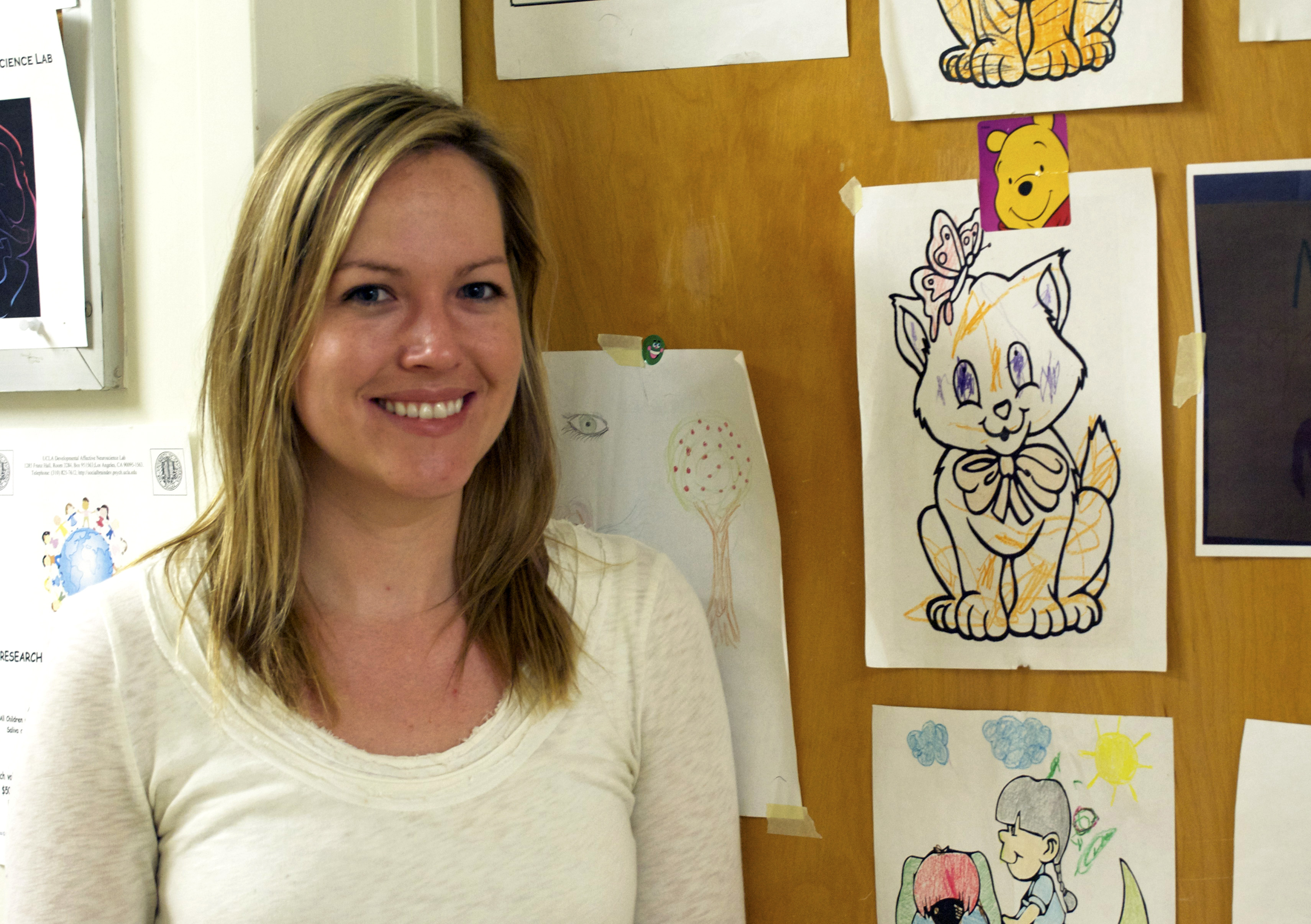
Courtesy of GRETCHEN SHOLTY
Gretchen Sholty is a psychology graduate student at UCLA who wants to focus on clinical work with veterans after she receives her doctorate. Her research on schizophrenia as a fourth-year undergraduate student at UCLA led her to pursue clinical psychology in her graduate studies.
Clarification: The original version of this caption was misleading. Gretchen Sholty is a psychology graduate student at UCLA who wants to focus on clinical work with veterans after she receives her doctorate.
Gretchen Sholty wanted to find a way to do it all.
She spent her first five years as a clinical psychology graduate student, unsure whether to pursue a career working with clients versus a research-oriented career path.
The five-to-six-year doctorate program allows students to dabble in researching with graduate professors and counseling through the psychology clinic and internships.
This leads some students to question what aspect of psychology they want to focus on most.
And the answers can vary, even within the single field of clinical psychology.
Sholty, now in her sixth and last year in the program, came into the program expecting to continue on a research path.
She enjoyed her undergraduate research work on schizophrenia as a fourth-year at UCLA, so she became a clinical psychology graduate student with the same adviser.
As a graduate student, though, Sholty had to move beyond her research comfort zone for mandatory work at the UCLA Psychology Clinic.
She was nervous ““ it was the first time someone was paying for her clinical services, and she was responsible for helping people, she said.
“I used to always be so anxious that my foot would fall asleep,” Sholty said. “I’d be kind of (limping) to the door to go out.”
She realized her passion for counseling, however, as her self-consciousness gave way to the confidence and pride that comes from helping clients.
She also liked being able to continue research while still working with clients.
“I liked the variety,” Sholty said. “It kept things exciting, I didn’t get burnt out.”
The UCLA clinical psychology doctorate program is science-based, so the goal is to train people for research and leadership roles, as opposed to strictly clinical practice, said Jill Waterman, an adjunct psychology professor and the coordinator of the UCLA Psychology Clinic.
But students also have to gain clinical experience through the UCLA Psychology Clinic and internships outside of the school.
“We feel like we should be training people who should be doing everything,” Waterman said. “If you’re doing clinical research, doing some clinical work informs your research.”
With her current internship with Veterans Affairs in Long Beach, Sholty has found her niche. It’s heavy on clinical work, with research and mentoring sprinkled in.
She does different rotations of clinical work within the center, and also presents research to the psychologists on new therapy modalities.
Leaning toward research
Other students, like Kate Humphreys, a clinical psychology graduate student in her fourth year in the doctorate program, fall on the other end of the spectrum.
While she enjoys the clinical work with clients, she has a greater appreciation for the possible long-term effects of clinical research.
“The hope is that with research, one’s reach might extend beyond a handful of individuals,” she said.
“And that can be rewarding, too.”
Scientific questions behind psychology always interested Humphreys, even though she didn’t necessarily know they would lead to a career.
Humphreys is continuing the family profession in a way ““ her mother is a psychologist and it always seemed like a fun job to learn about other people and help them, she said.
“I’ve always wondered how people become who they become,” Humphreys said.
But she found herself interested in the deeper questions psychology presents, even in middle school.
Her science fair project explored the differences in stress levels of seventh- and eighth-grade students by gender. Now, her dissertation focuses on the choices of risk-taking.
The ideal professional lifestyle Humphreys describes would be a hectic one.
She wants to continue research with direct clinical applications. The most preferable places would be a university or a lab in which she can also mentor graduate and undergraduate students.
She’d also like to juggle a small private practice or see clients in a clinic like the UCLA Psychology Clinic.
“The hard thing for clinical psychology (students),” Humphreys said, “is that there are so many options.”
